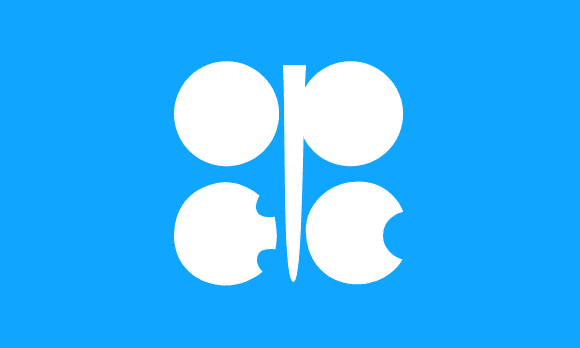- Full Organization Name: Organization of the Petroleum Exporting Countries
- Type: Intergovernmental Organization
- Membership: 13 member states
- Establishment: Established on 14 September 1960
- Official Language(s): English
- Headquarters: Vienna, Austria
The Organization of the Petroleum Exporting Countries (OPEC) is a permanent intergovernmental organization, created at the Baghdad Conference on September 10–14, 1960, by Iran, Iraq, Kuwait, Saudi Arabia, and Venezuela. The five Founding Members were later joined by ten other Members. OPEC’s objective is to coordinate and unify petroleum policies among Member Countries, to secure fair and stable prices for petroleum producers; an efficient, economic, and regular supply of petroleum to consuming nations; and a fair return on capital to those investing in the industry.
Organization of the Petroleum Exporting Countries History
OPEC was founded in 1960 by five oil-producing countries: Iran, Iraq, Kuwait, Saudi Arabia, and Venezuela. The formation of OPEC marked the first significant attempt by oil-producing countries to influence oil prices through collective action. The organization has since expanded and has played a major role in dictating global oil prices and policies. Over the decades, OPEC has faced various challenges and has adapted its strategies to manage the balance between oil supply and demand globally.
Organization of the Petroleum Exporting Countries Structure
The structure of OPEC is primarily made up of the Conference, the Board of Governors, and the Secretariat. The Conference is the supreme authority of the organization and consists of delegations normally headed by the oil ministers of Member Countries. The Board of Governors, on the other hand, is composed of governors nominated by Member Countries and confirmed by the Conference for a period of two years. The Secretariat is responsible for executing the administrative and operational activities of the organization. The Secretariat is headed by the Secretary-General.
Organization of the Petroleum Exporting Countries Membership
Membership in OPEC is open to any country that is a substantial exporter of oil and shares the ideals of the organization. Currently, OPEC has 13 member countries, primarily from the Middle East, Africa, and South America.
Organization of the Petroleum Exporting Countries Objectives
Stabilize Oil Markets
OPEC aims to stabilize oil markets by coordinating petroleum policies among member countries, ensuring a balance between supply and demand.
Secure Fair Pricing
A key objective is to secure fair and stable prices for petroleum producers, protecting their interests and allowing them to achieve a reasonable rate of return on their investments.
Efficient Supply
The organization seeks to ensure an efficient, economic, and regular supply of petroleum to consuming nations, contributing to global energy security.
Organization of the Petroleum Exporting Countries Funding
OPEC’s operations are funded by its member countries. The financial contributions of each member are determined based on its level of oil production and the overall budget agreed upon by the member countries.
Organization of the Petroleum Exporting Countries Projects
While OPEC is primarily focused on coordinating petroleum policies among its member countries, it also engages in various projects, including:
Energy and Economic Research
OPEC conducts research on energy market trends, economic impacts, and future projections, providing valuable insights and data for policy-making and industry stakeholders.
Environmental Initiatives
The organization is involved in environmental initiatives aimed at reducing the environmental impact of oil production and promoting sustainable practices in the industry.
Organization of the Petroleum Exporting Countries Members
Member States
- Algeria
- Angola
- Congo
- Equatorial Guinea
- Gabon
- Iran
- Iraq
- Kuwait
- Libya
- Nigeria
- Saudi Arabia
- United Arab Emirates
- Venezuela
OPEC continues to be a dominant force in the global oil industry, playing a crucial role in shaping energy policies, stabilizing oil markets, and ensuring a steady supply of oil to the global economy. Through its coordinated efforts, OPEC strives to balance the interests of oil-producing countries, consumers, and stakeholders in the energy sector, making it an indispensable organization in the global energy landscape.

